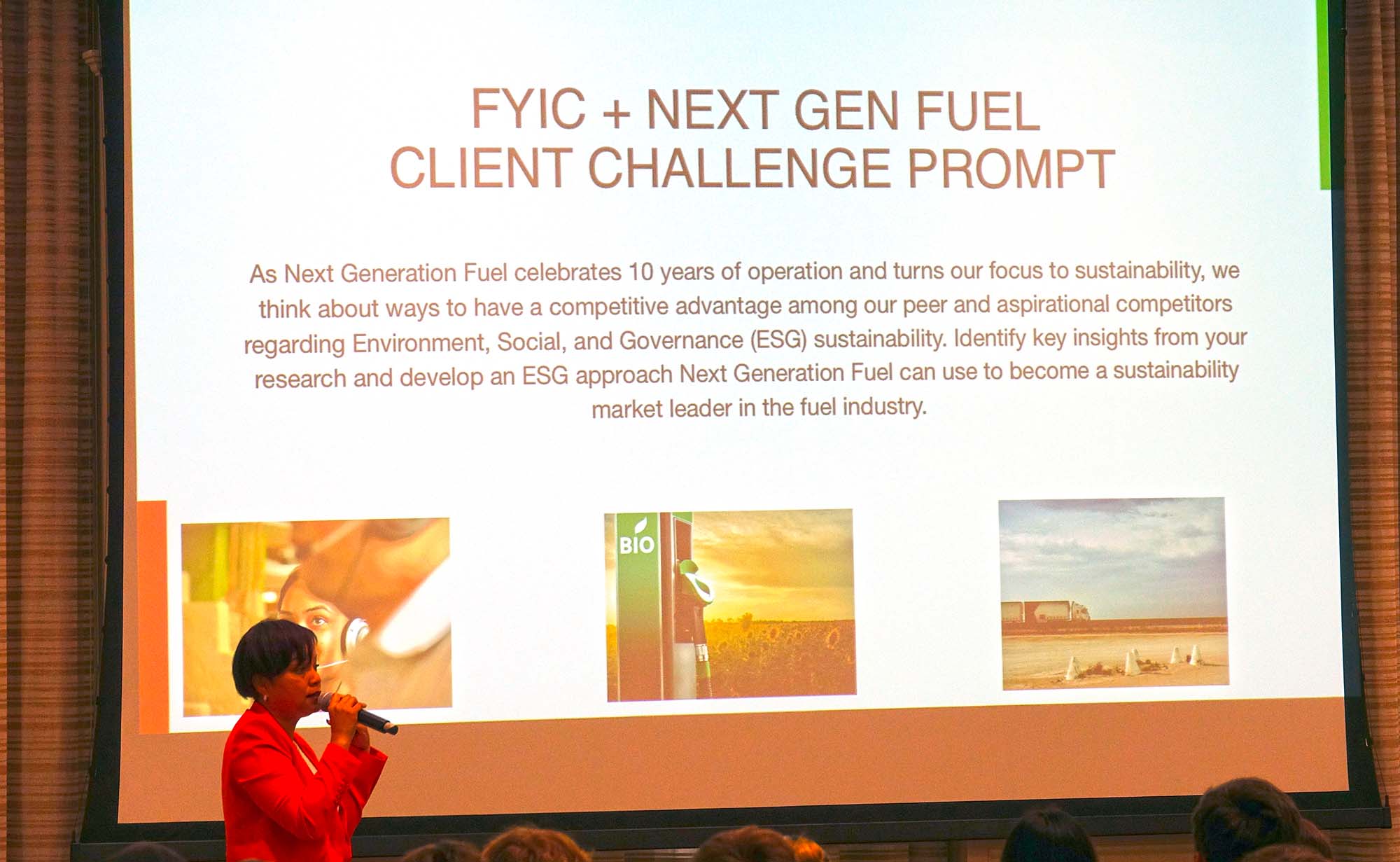FYIC students take on small company's big challenge for client project
Finding sustainablity in a fossil fuel transport industry? That's the challenge for First-Year Independent Core students this semester.

FYIC students take on small company's big challenge for client project
Each semester, students in the Miami University Farmer School of Business First-Year Integrated Core (FYIC) take on a Client Challenge at the end of the semester. Past clients have been major sports teams like FC Cincinnati, or corporate giants such as Fifth Third Bank, KeyBank, and Cleveland Clinic.
But the spring FYIC student cohort’s challenge is different in many ways, one of which is the size of the company involved. Cincinnati-based Next Generation Fuel has a total of four employees, one fewer person than the average student FYIC team has. However, that “small but mighty team” is a Tier 1 provider of its products with a big business infrastructure and vision for its future.
FYIC director Becky Crews says working with a very small company has definite benefits. “It’s an opportunity we haven’t had before. The things that the students will suggest and propose as solutions have a very real possibility of actually changing the course of this business, which is a huge deal,” she said. “You can make a bigger change on a much bigger scale with a smaller company.”
Next Generation Fuel is a minority and female-owned wholesale distributor of petroleum-refined products and alternative fuels throughout the United States with long term plans to reinvigorate its operations in Mexico and South Africa, countries with significant clean energy needs. Founder and CEO Bernita McCann Hightower said she wanted to take part in the Client Challenge because she feels the experience will be mutually beneficial.
“I believe that the next generation of leaders are here, the next generation of bright minds and thoughts. What I need in order for me to excel in my industry, to get there quicker and faster, is right here in this room. So, this is a match made in heaven for me, a perfect marriage within my core values,” she said. “I really do believe that we should take the time to really groom our next generation in order for them to become the best that they can be.”
The students’ task isn’t an easy one. They’re charged with identifying key insights from research to help develop an Environmental, Social, and Governance approach that Next Gen Fuel can use to become a sustainability market leader in the fuel industry.
“Sustainability starts with the mindset. As I was sharing with the students, we are in an unsustainable market, and Mother Nature is forcing us to get ourselves more sustainable as an environment,” Hightower said. “For Next Generation Fuel, I feel like sustainability is not just around an industry, it's around the entire ecosystem as to what we live in.”
“Our students very deeply care about social impact, social change, and sustainability, and they have an opportunity to really dig into something that they care deeply about,” Crews said. “It’s important to have a client project that you don't just check the box for application, but where you actually get the students engaged, and that's how they're going to learn and transfer that knowledge eventually.”
The FYIC is unique in that it puts first-year business students into a consulting role for a real client much sooner in their college career than most schools, Crews said. “They have the opportunity to make real change and doing so in a way that provides them the opportunity to not only gain those foundational skills, but really build on them exponentially throughout their time in the business school.”
“Working with Bernita, it seems like she very much sees the value in collaborating not just with students, but with the faculty. So, it's a real team effort...and it's been a great opportunity for us to learn from her and for her to learn from us,” Crews said.
“I hope that I can spark their minds to reach beyond what they thought their limitations could be. To really know that their voice is being heard and that they can think beyond the walls that we sit in, what society allows us to dream or to think about,” Hightower said. “I hope that going through this program, not only helps me, but I'm hoping that I can help them to reach their fuller potential.”